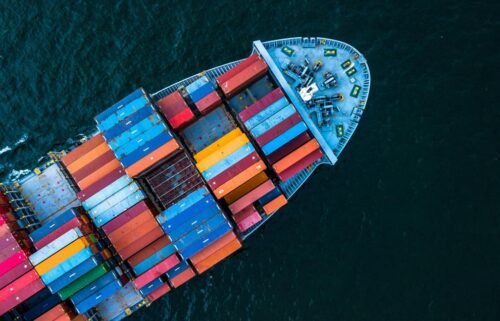20 megacorporations you didn't know run the economy
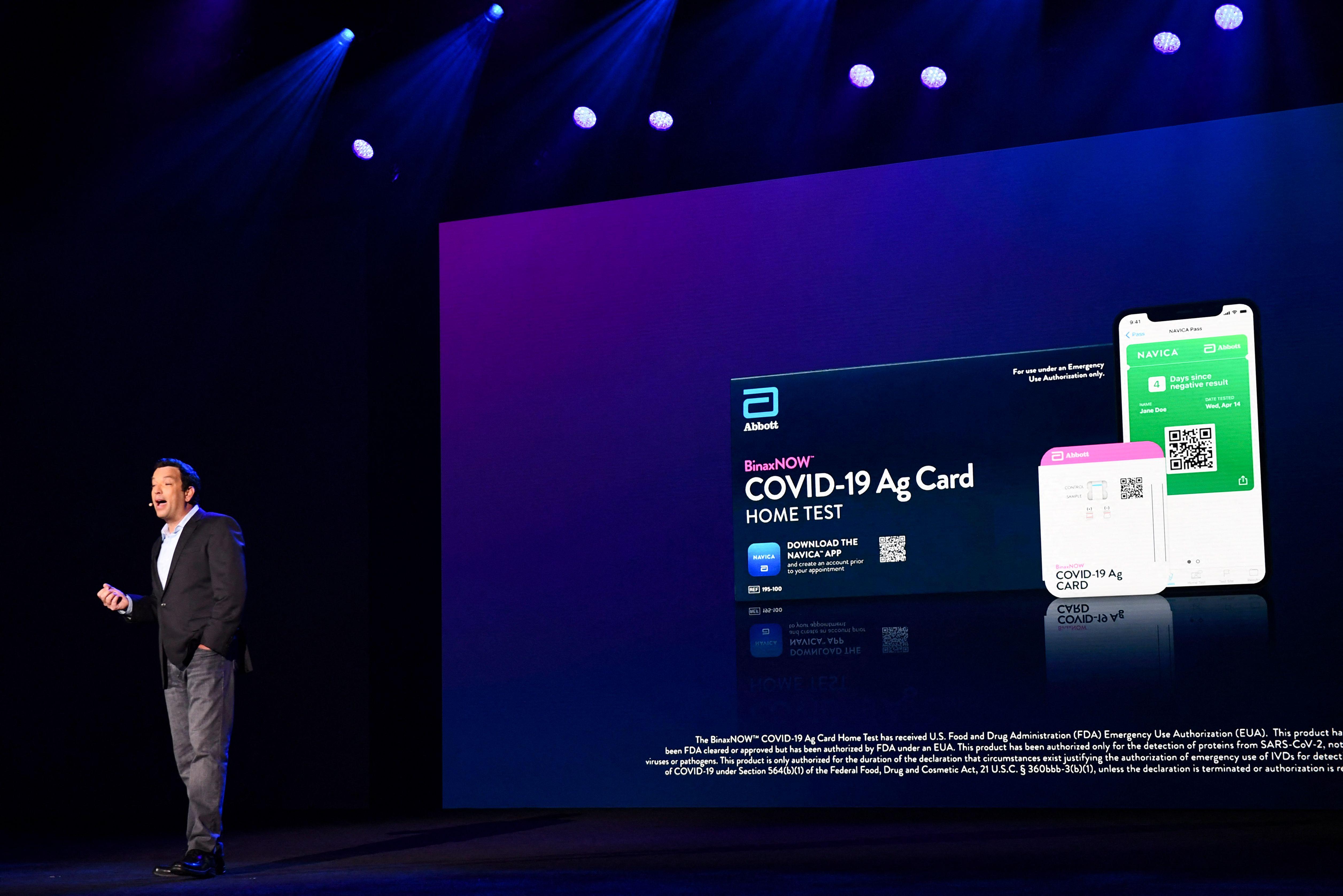
PATRICK T. FALLON/AFP // Getty Images
20 megacorporations you didn’t know run the economy
Chief executive officer of Abbott Laboratories speaking onstage.
If you like to support small brands when you shop, you might be surprised to find out that many labels that seem to be small are really owned by larger conglomerates. Conglomerates are company structures that combine multiple businesses together as subsidiaries under one parent company. These subsidiary companies are often in different industries that may not relate to one another.
CouponBirds analyzed the Forbes Global 2000 list to identify 20 U.S.-based conglomerates with a high overall value of their assets and acquisitions over time, as well as major sway in the economy.
Company leaders opt for a conglomerate structure because it can increase corporate revenues, help a company expand into other countries, create greater efficiencies through economies of scale, spread out market risk, and prevent takeovers.
The conglomerate model in the U.S. may be losing its Midas touch, as some companies are starting to break up their businesses into distinct companies in hopes that better product alignment will stimulate growth—and stock prices. By the end of 2023, for instance, Kellogg Company plans to split its global snacks and North American cereal businesses into two separate companies called Kellanova and WK Kellogg Co., respectively.
![]()
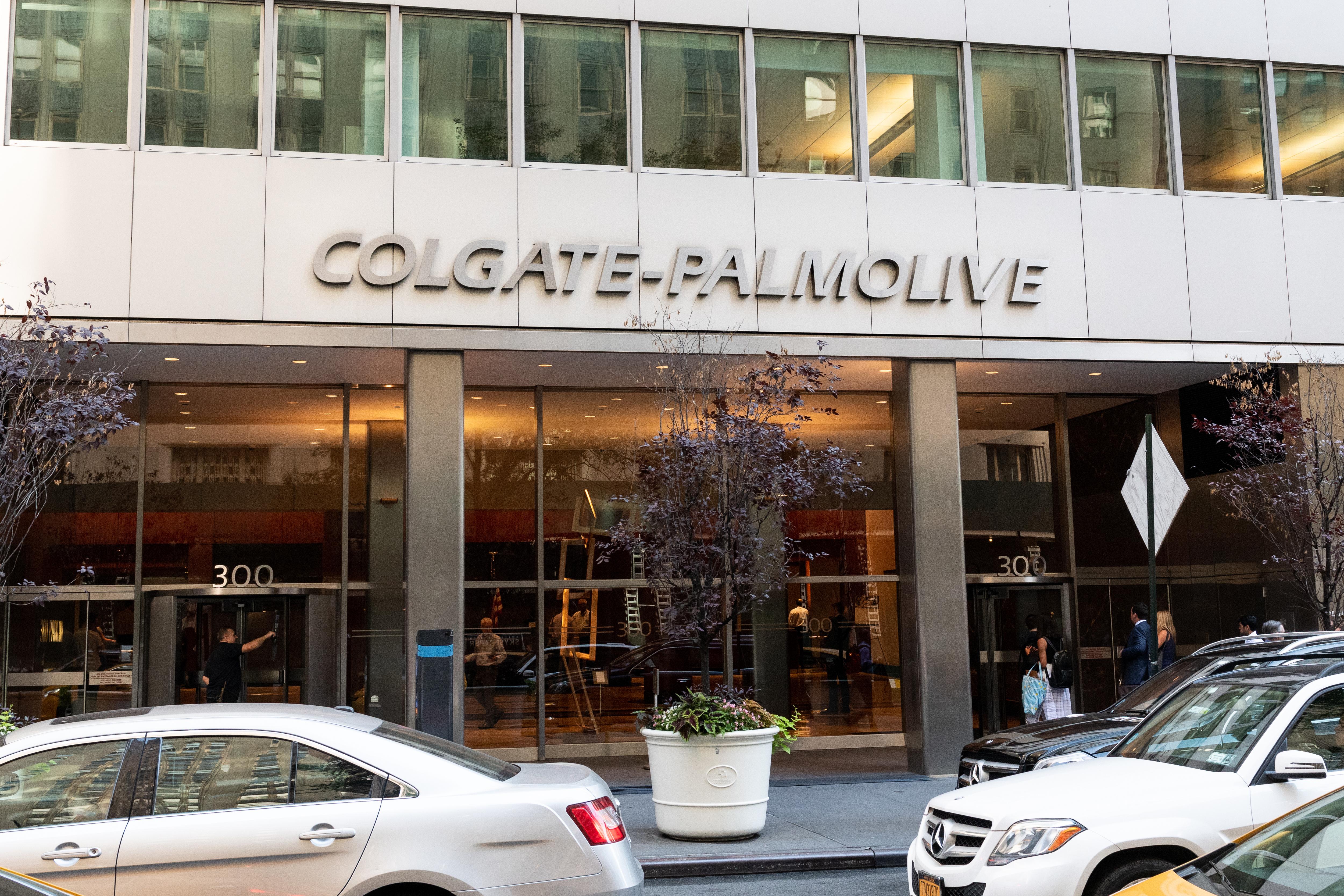
Michael Brochstein/SOPA Images/LightRocket // Getty Images
Colgate-Palmolive
The Colgate-Palmolive headquarters in New York.
Sales: $17.42 billion
Market value: $68.17 billion
Number of companies/divisions: 4
The 1928 merger of Colgate and Palmolive-Peet founded this conglomerate, blending the two companies’ oral care and home care brands. Over the next 94 years, the company grew by acquiring Hoyt Laboratories, Softsoap, Murphy’s Oil Soap, Mennen, Tom’s of Maine, and Hello Product. Today, this global player has 32 brands in the oral care, pet nutrition, personal care, and home care categories.
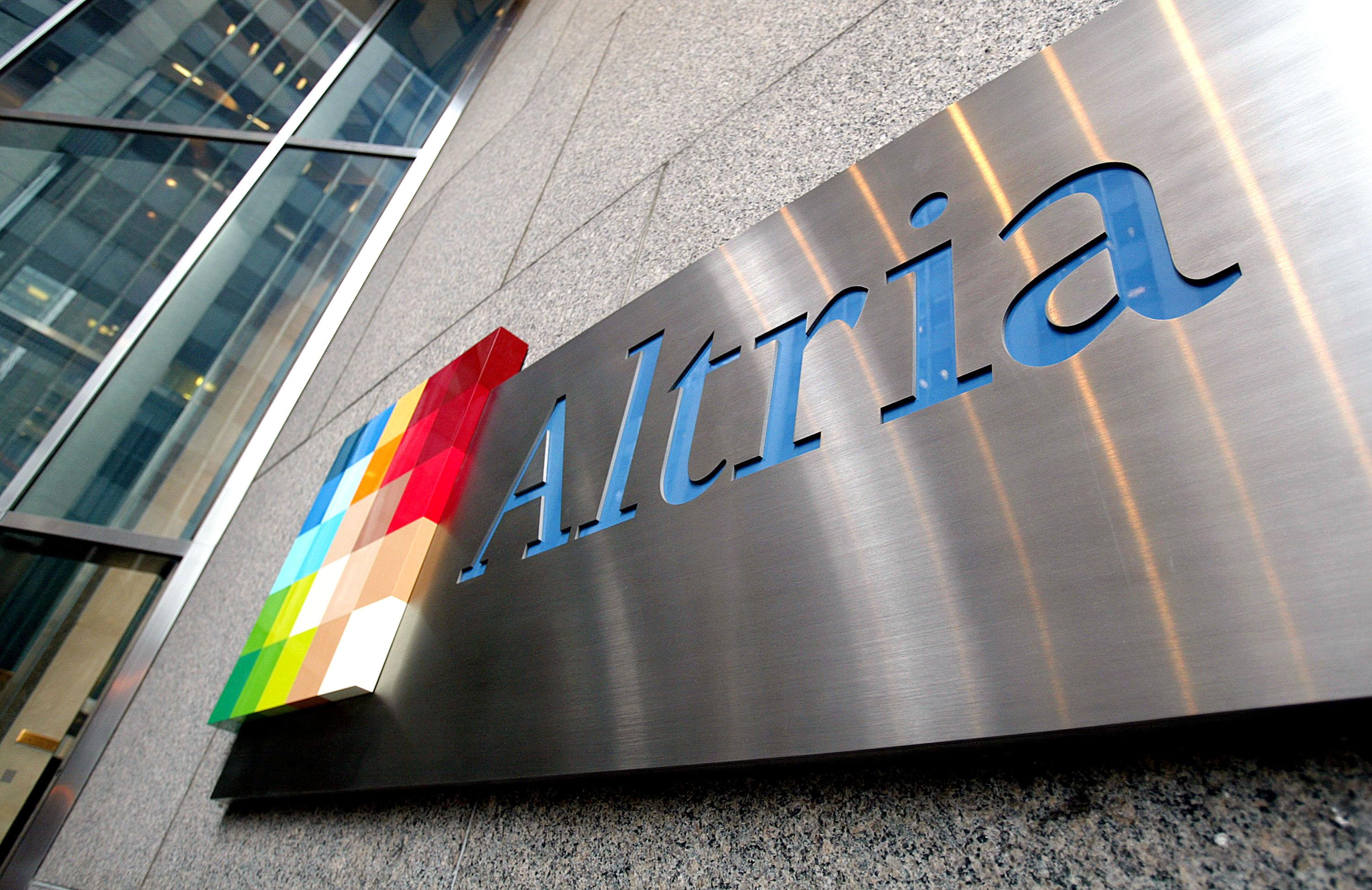
Mario Tama // Getty Images
Altria Group
Altria headquarters in New York.
Sales: $21.11 billion
Market value: $100.66 billion
Number of companies: 4
When it comes to tobacco products, Altria is a major conglomerate with operating companies that cover the major industry channels. Cigarette manufacturer Philip Morris has a 47.9% market share in the U.S., led by Marlboro. Altria’s other companies include U.S. Smokeless Tobacco Company, which makes Copenhagen and Skoal; John Middleton, which makes pipe tobacco and cigars; and Helix Innovations, which manufactures nicotine pouches.
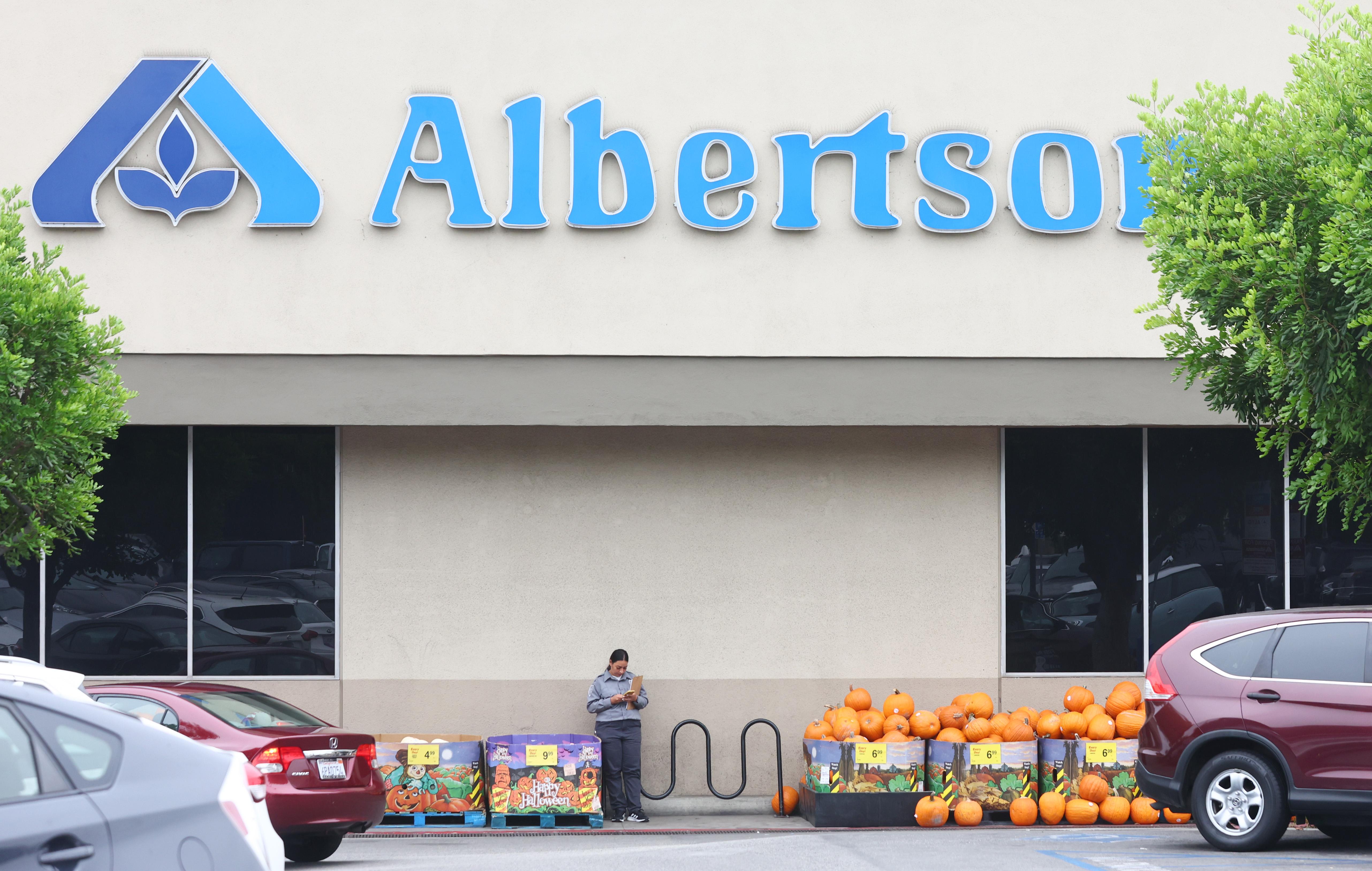
Mario Tama // Getty Images
Albertsons
The exterior of an Albertson’s store in California.
Sales: $71.89 billion
Market value: $15.57 billion
Number of companies/divisions: 20
Your local grocery store may actually be part of a conglomerate. Albertsons owns groceries, gas stations, and in-store pharmacies for 20 brands in 34 states and Washington D.C., including Safeway, Vons, Jewel-Osco, Shaw’s, Star Market, and Randalls. The grocer is planning another megamerger: In October 2022, it agreed to be acquired by Kroger, which, if approved by the Federal Trade Commission, would be one of the largest grocery mergers in U.S. history.
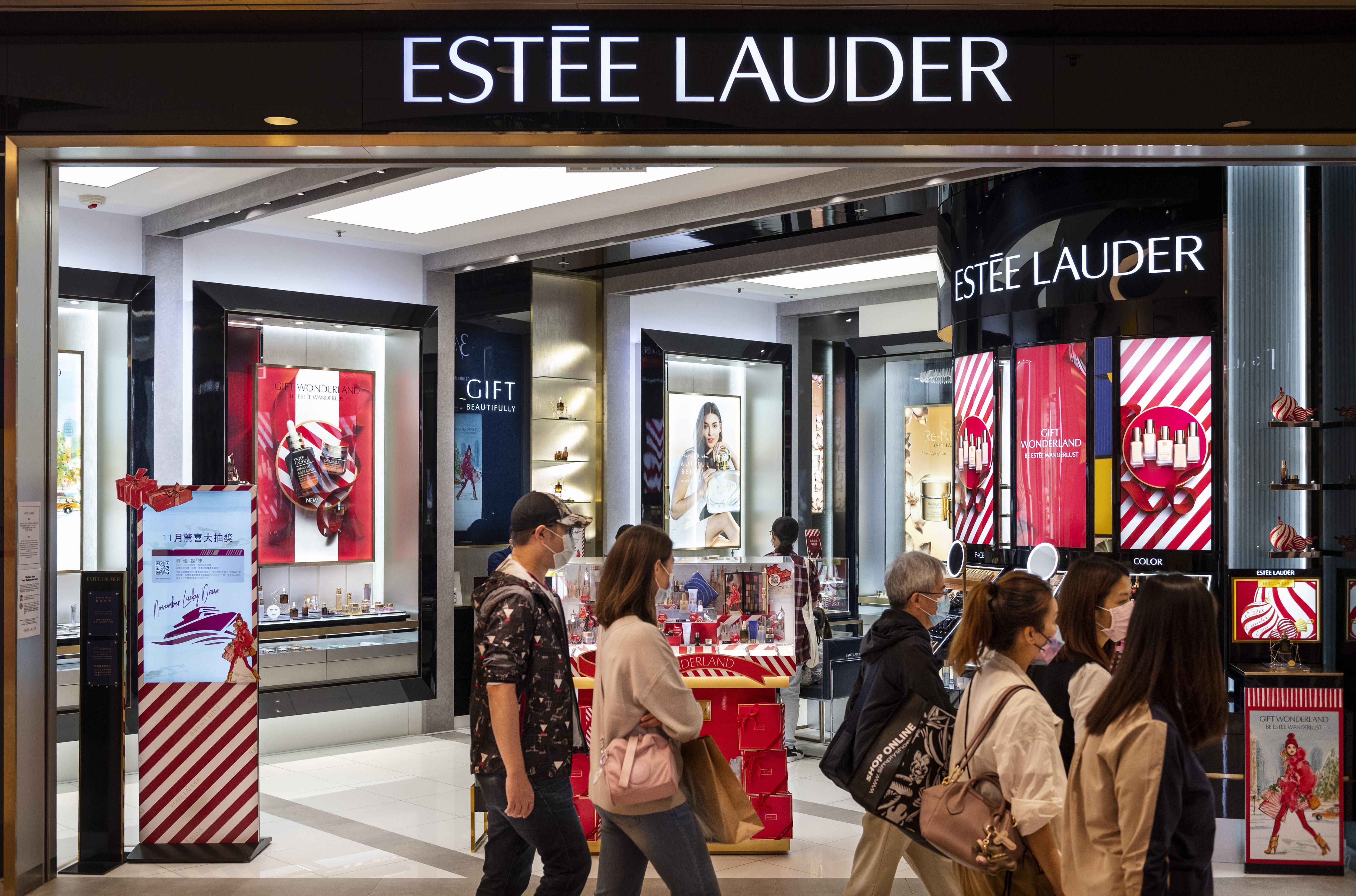
Chukrut Budrul/SOPA Images/LightRocket // Getty Images
Estee Lauder Companies
Shoppers walk past an Estée Lauder store in a mall.
Sales: $17.77 billion
Market value: $94.7 billion
Number of companies/divisions: 4
Estée Lauder launched her beauty company in 1946 with four skin care products. Since then, the company has expanded to encompass 21 brands within the skin care, makeup, fragrance, and hair care categories. With its acquisition of Tom Ford’s company in November 2022, Estée Lauder now has a presence in the apparel industry.
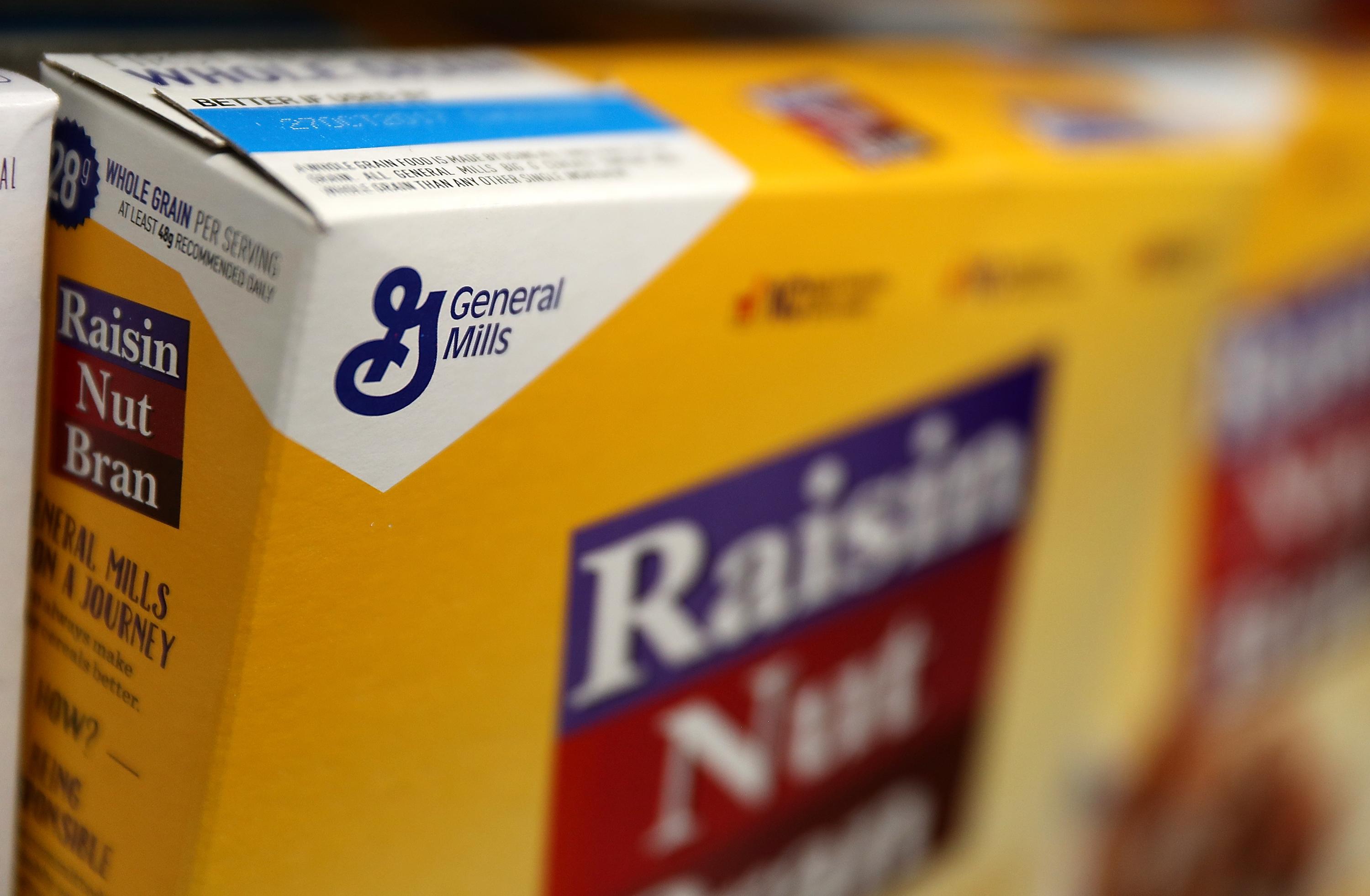
Justin Sullivan // Getty Images
General Mills
The General Mills logo on a cereal box.
Sales: $18.63 billion
Market value: $43.66 billion
Number of product categories: 8
General Mills has a product in nearly every aisle of the grocery store. The company made acquisitions throughout its history—including a foray into the restaurant business in 1970 with the purchase of Red Lobster, which it spun off in 1995. However, it sealed its status as a conglomerate in 2001 with the purchase of the Pillsbury Company, which spread the company’s interests to more food categories beyond cereal.
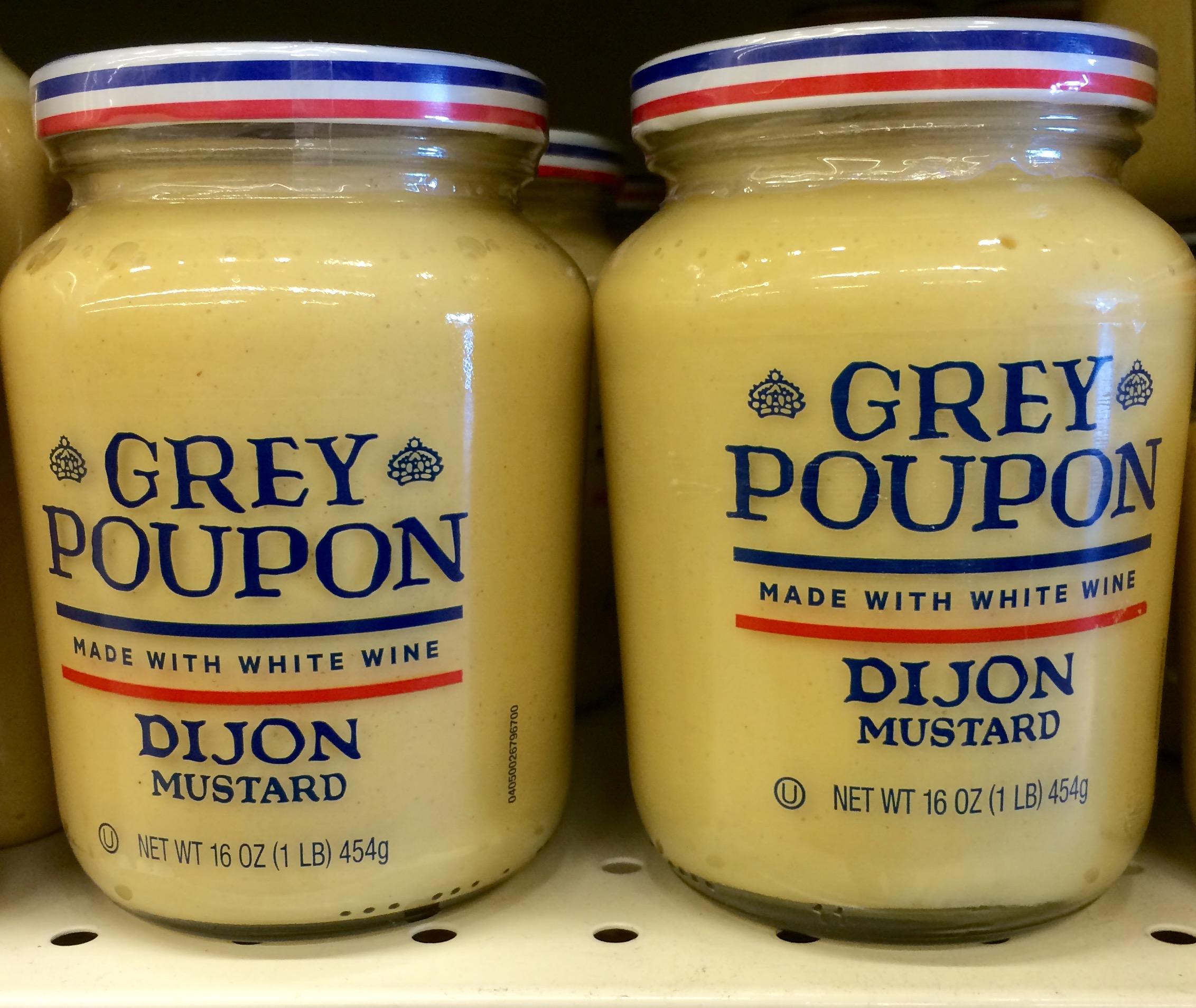
Kevin Schafer/Contributor // Getty Images
Kraft Heinz
Jars of Grey Poupon on a grocery shelf.
Sales: $26.04 billion
Market value: $52.89 billion
Number of product categories: 8
Conglomerates look to mergers and acquisitions to boost growth, and the 2015 merger between food giants Kraft and Heinz created an even more major player in the industry. Its brands include Oscar Mayer, Ore-Ida, CapriSun, Maxwell House, Jell-O, Stove Top, and Grey Poupon. Kraft Heinz has subsidiaries based in over 25 countries worldwide.
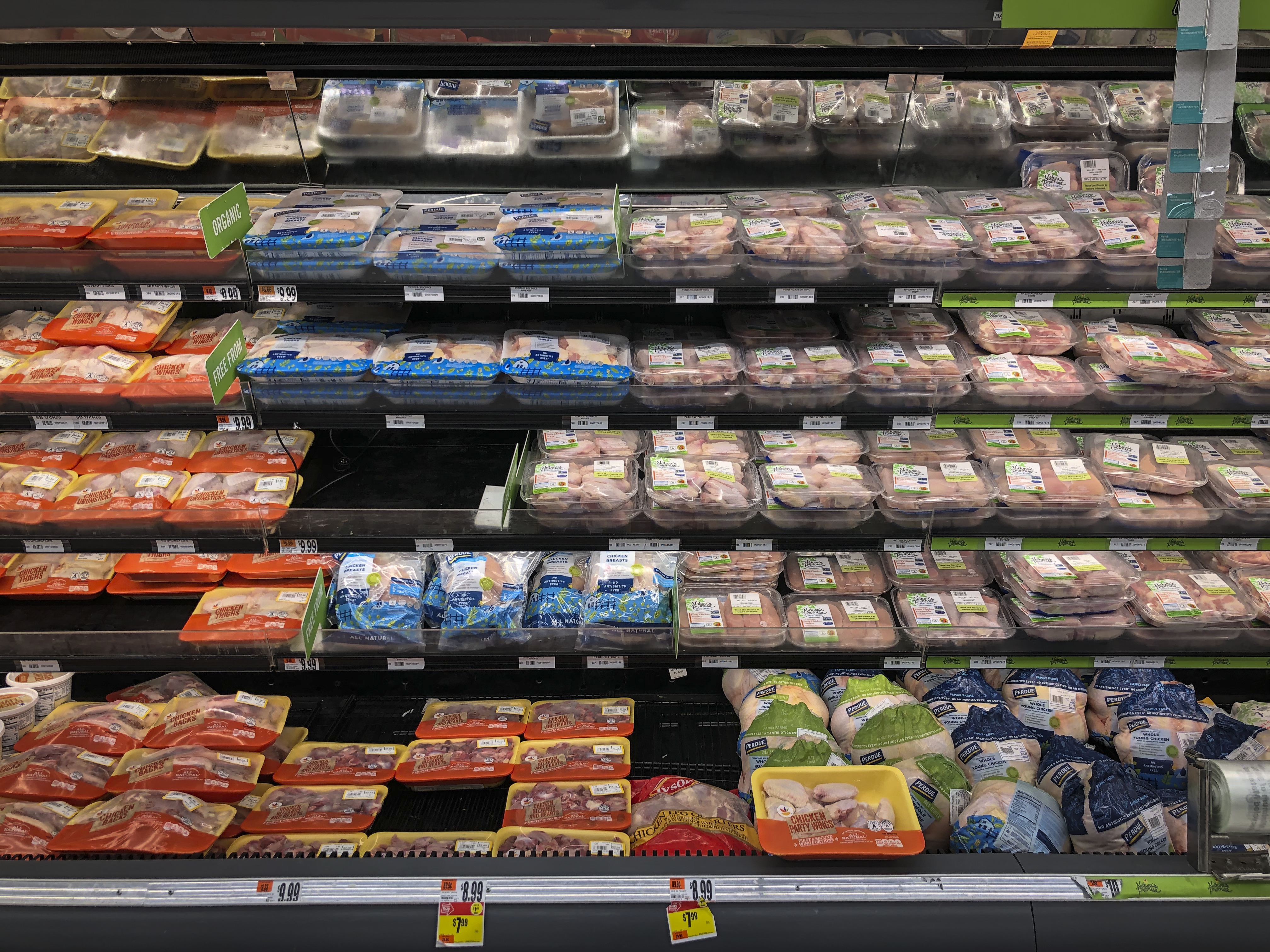
Drew Angerer // Getty Images
Tyson Foods
Rows of meat in a cold case at a grocery store.
Sales: $49.52 billion
Market value: $33.74 billion
Number of companies/divisions: 5
One of the big four meat conglomerates in the U.S., Tyson is synonymous with chicken, but it also produces beef, pork, and prepared foods under such brand names as Jimmy Dean, Hillshire Farm, and Sara Lee. Tyson has also gotten into the plant-based meat alternative market with its Raised & Rooted line of nuggets, burgers, and plant-based sausages.
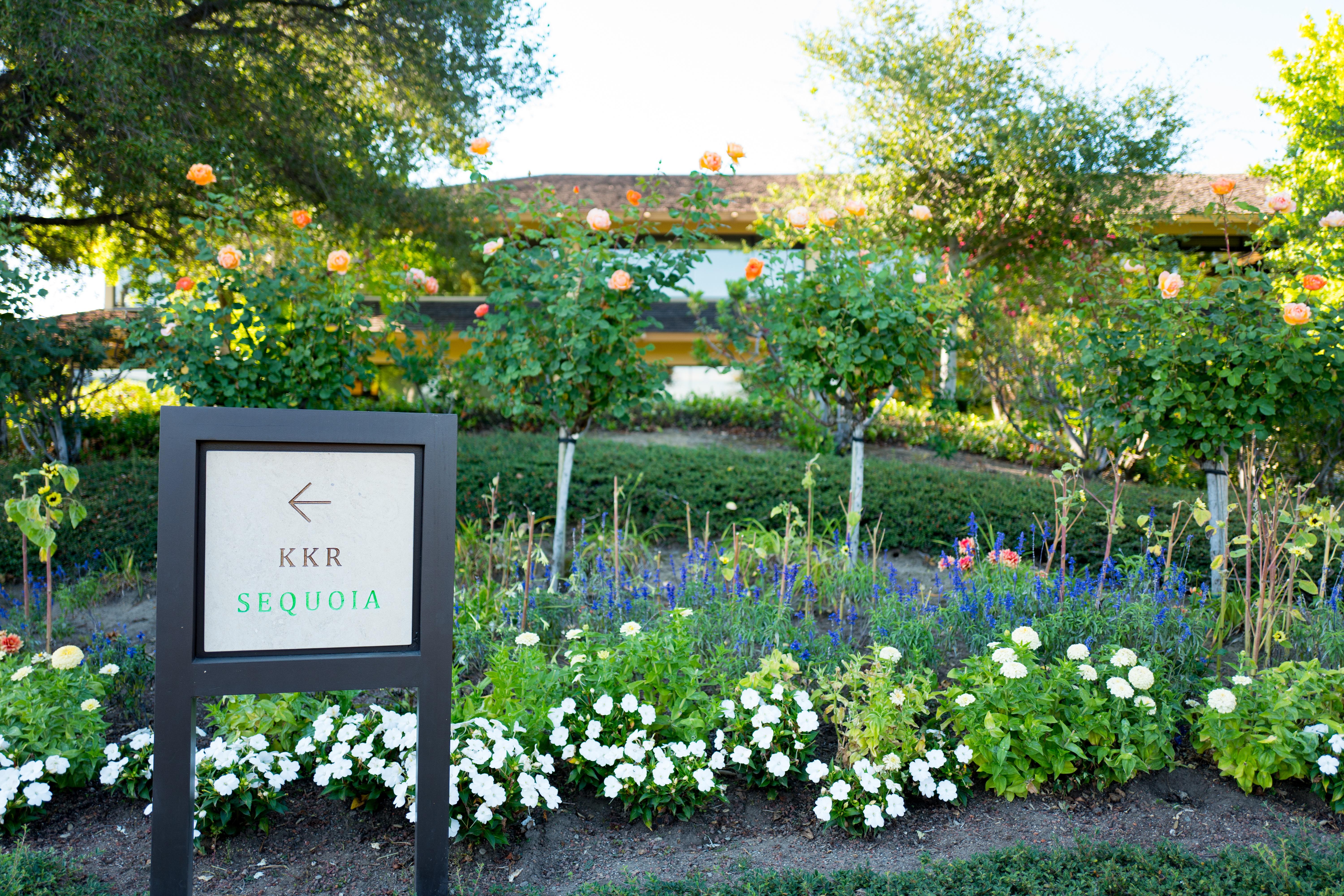
Smith Collection/Gado // Getty Images
KKR
A KKR sign in front of a flower bed.
Sales: $19.02 billion
Market value: $30.6 billion
Number of companies/divisions: 10
KKR is a financial services company whose activities include real estate, hedge funds, and credit investments. It also has a private equity arm that owns part or all of 250 companies throughout the world, including 97 U.S.-based companies such as 1-800 Contacts and Epic Games.
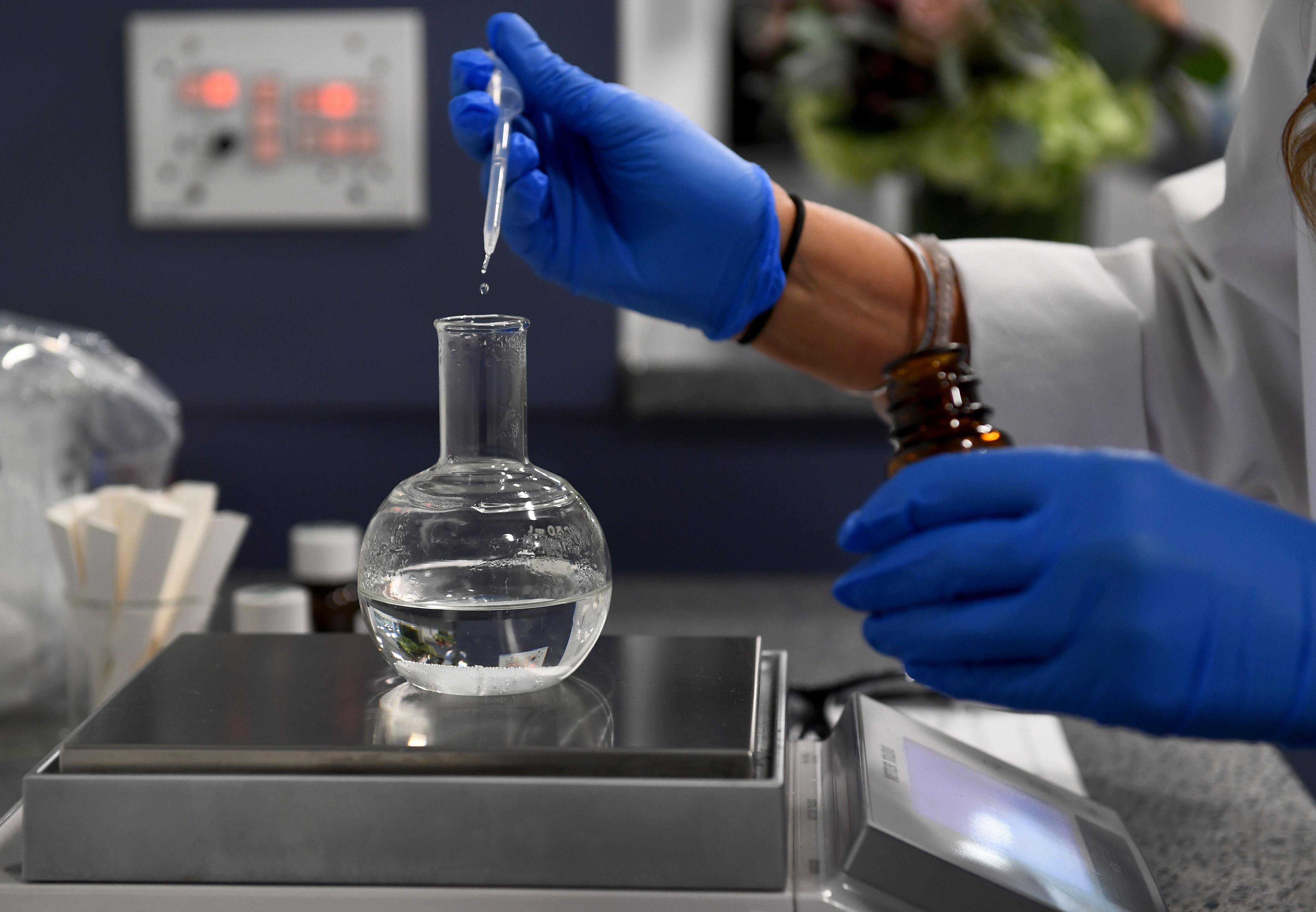
Katherine Frey/The Washington Post // Getty Images
Archer-Daniels-Midland Company
A flavorist drops liquid into a beaker.
Sales: $85.26 billion
Market value: $51.85 billion
Number of companies/divisions: 5
This agricultural commodities conglomerate creates ingredients for foods, beverages, and supplements—for humans and animals alike. Its industrial biosolutions division makes ingredients for a wide range of industries, including home cleaning, beauty, construction, and renewable energy. In the late 1990s, Archer-Daniels-Midland Company was in the spotlight as company executives were found guilty of price-fixing, a case that became the basis for the Matt Damon movie “The Informant!”
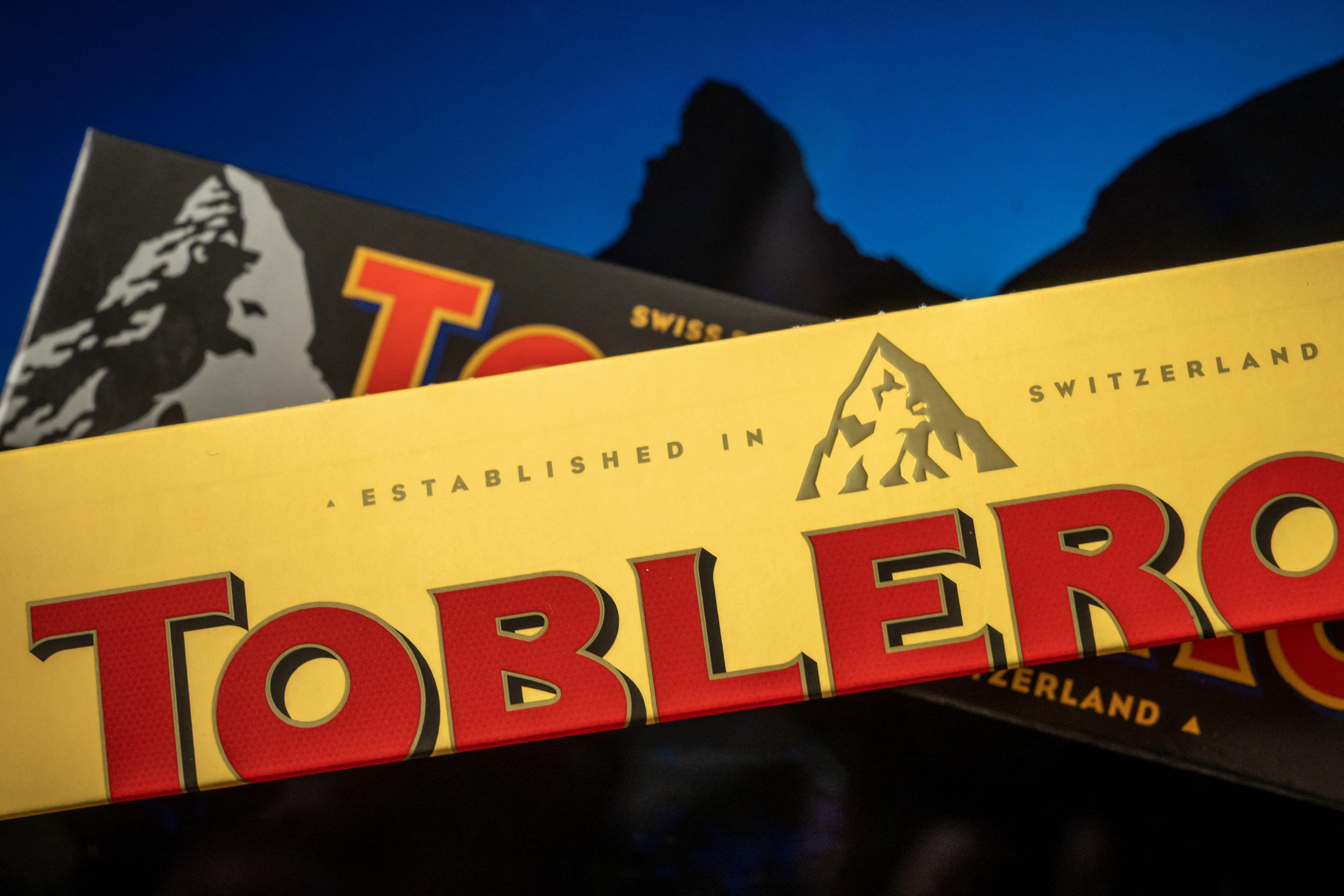
FABRICE COFFRINI/AFP // Getty Images
Mondelez
A Toblerone candy bar.
Sales: $28.72 billion
Market value: $89.98 billion
Number of companies/divisions: 4
Conglomerates will sometimes spin off parts of their company, which is how Mondelēz came into being. It formed in 2012 when Kraft split its snacks and grocery businesses; the grocery business eventually became Kraft Heinz. Mondelēz is a global powerhouse in biscuits, crackers, cookies, confectionery, and gum, with a product portfolio that includes Cadbury, Milka, Toblerone, Oreo, and Ritz.
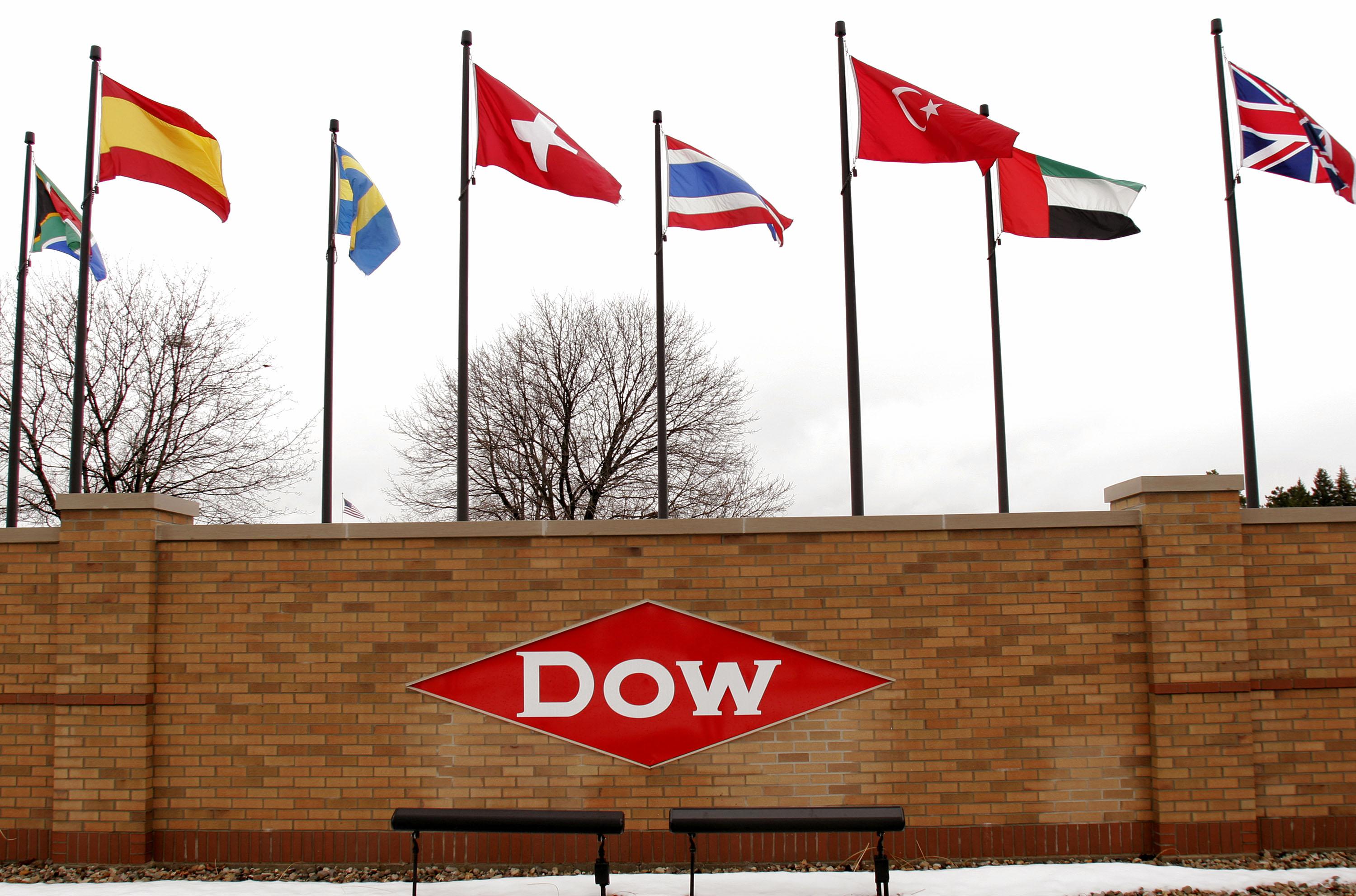
Bill Pugliano // Getty Images
Dow
A brick entrance to Dow with various flags.
Sales: $58.35 billion
Market value: $50.35 billion
Number of companies/divisions: 3
Since 1897, Dow has been an innovator in chemicals and material sciences—it’s responsible for inventing Styrofoam and Saran wrap. Its products cover 17 markets touching virtually every aspect of life. Throughout the company’s history, it has grown and shrunk by acquiring companies or selling off divisions. Its current incarnation is a spinoff of the 2017 megamerger of Dow and DuPont.
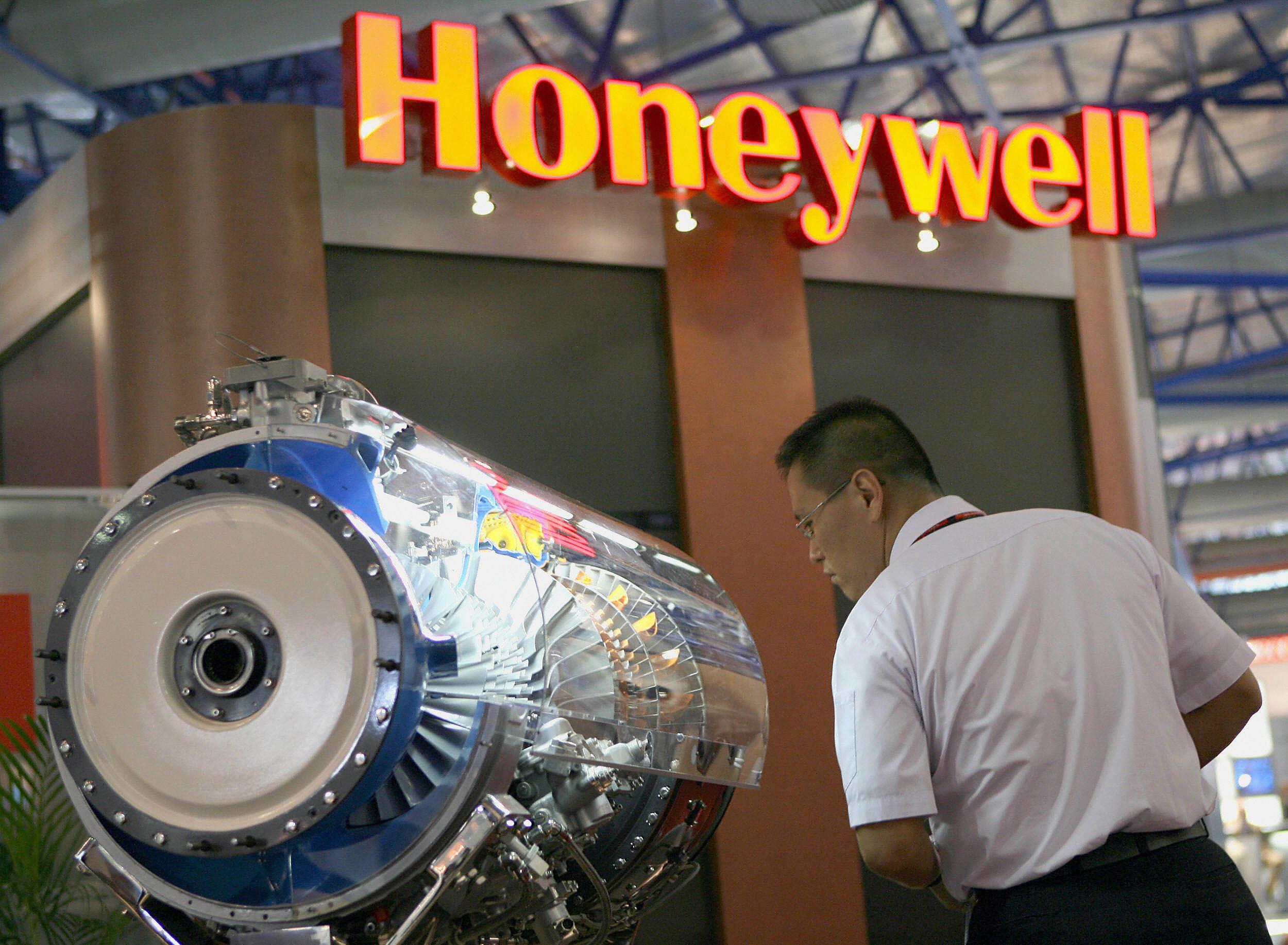
ROSLAN RAHMAN/AFP // Getty Images
Honeywell
A man viewing a Honeywell aircraft engine on display.
Sales: $34.39 billion
Market value: $130.67 billion
Number of companies/divisions: 4
Honeywell is an industrial goods giant that creates components and technologies that go into many homes, office buildings, airplanes, and even space. Its innovations include pioneering the modern thermostat and developing parts for the James Webb Space Telescope.
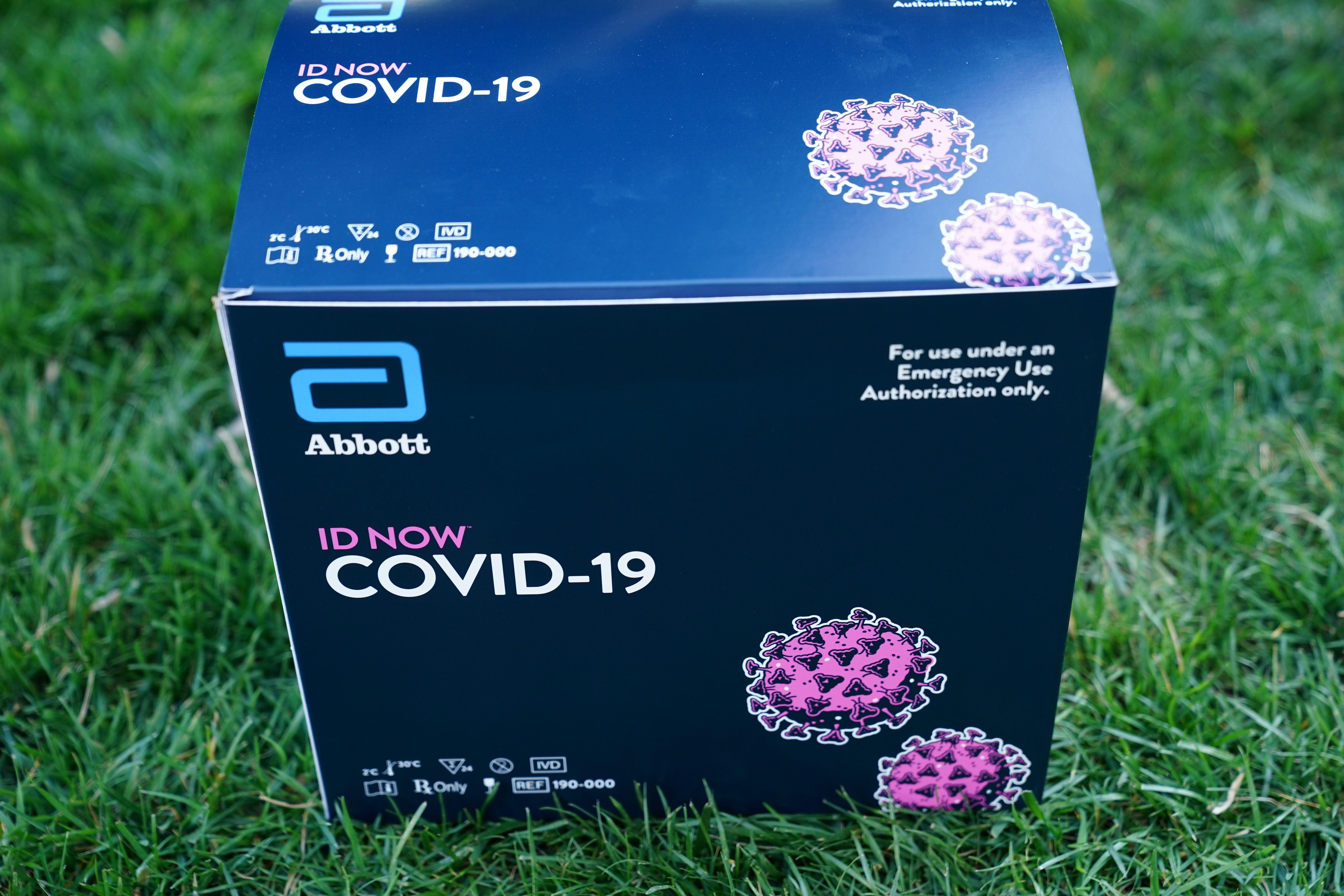
MANDEL NGAN/AFP // Getty Images
Abbott Laboratories
Abbott Labs COVID-19 test.
Sales: $44.51 billion
Market value: $210.98 billion
Number of companies/divisions: 4
This health care conglomerate is a major player in cardiovascular medical devices, and it’s also responsible for diagnostics tests like the BinaxNOW COVID-19 test. Abbott also had about 40% of the market for baby formula until a factory shutdown created a nationwide formula shortage. The debacle has since prompted an ongoing investigation led by the Securities and Exchange Commission and Federal Trade Commission.
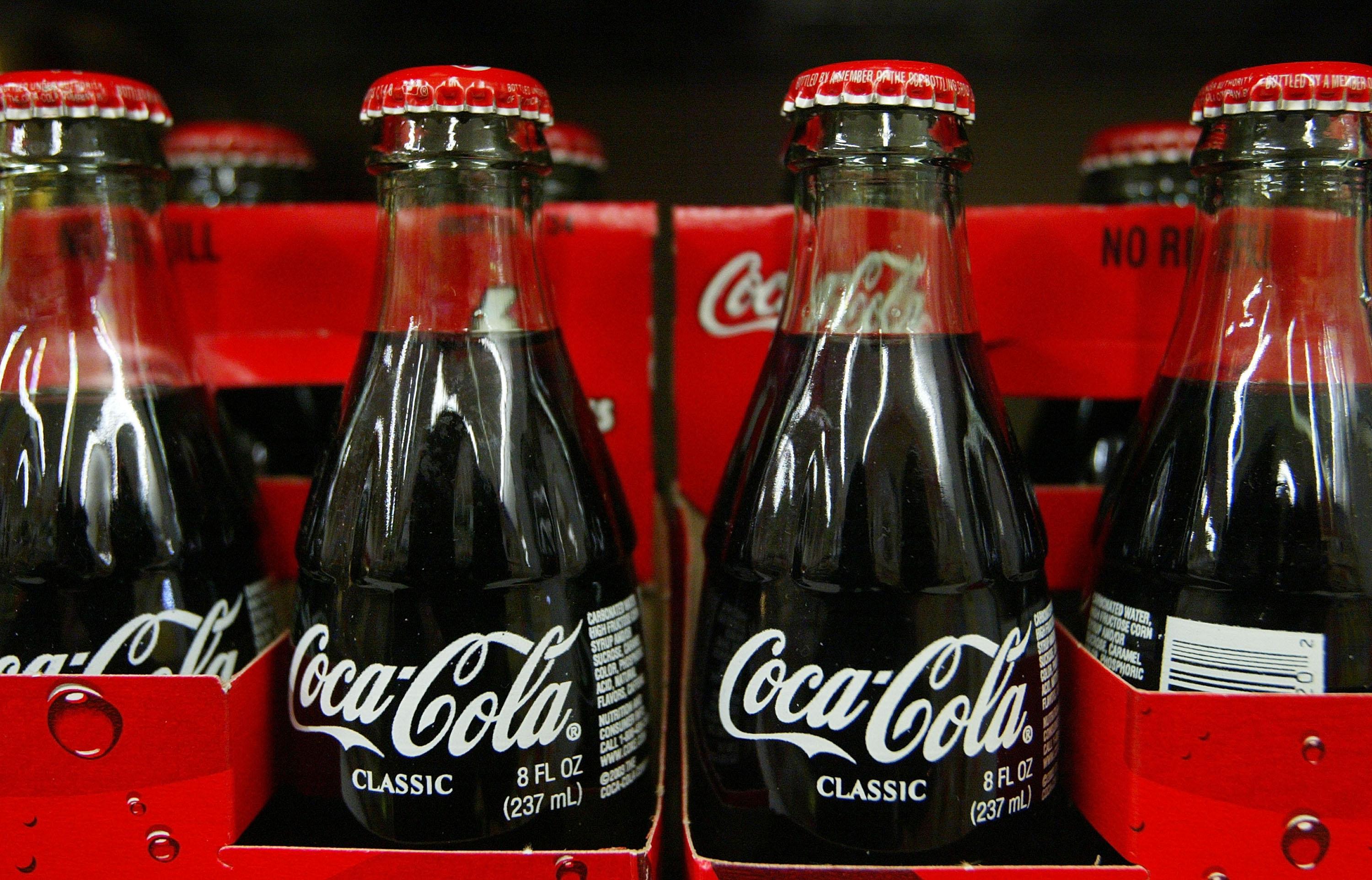
Justin Sullivan // Getty Images
Coca-Cola
Coca-Cola bottles.
Sales: $38.73 billion
Market value: $282.86 billion
Number of companies/divisions: 5
What began as a soft drink company in 1886 has become a worldwide beverage conglomerate with any beverage you want, including water, juice, coffee, and ready-to-drink cocktails. Its 200 brands are found in almost every country and territory in the world, although the company announced in 2022 that it was pulling out of Russia due to the war in Ukraine.
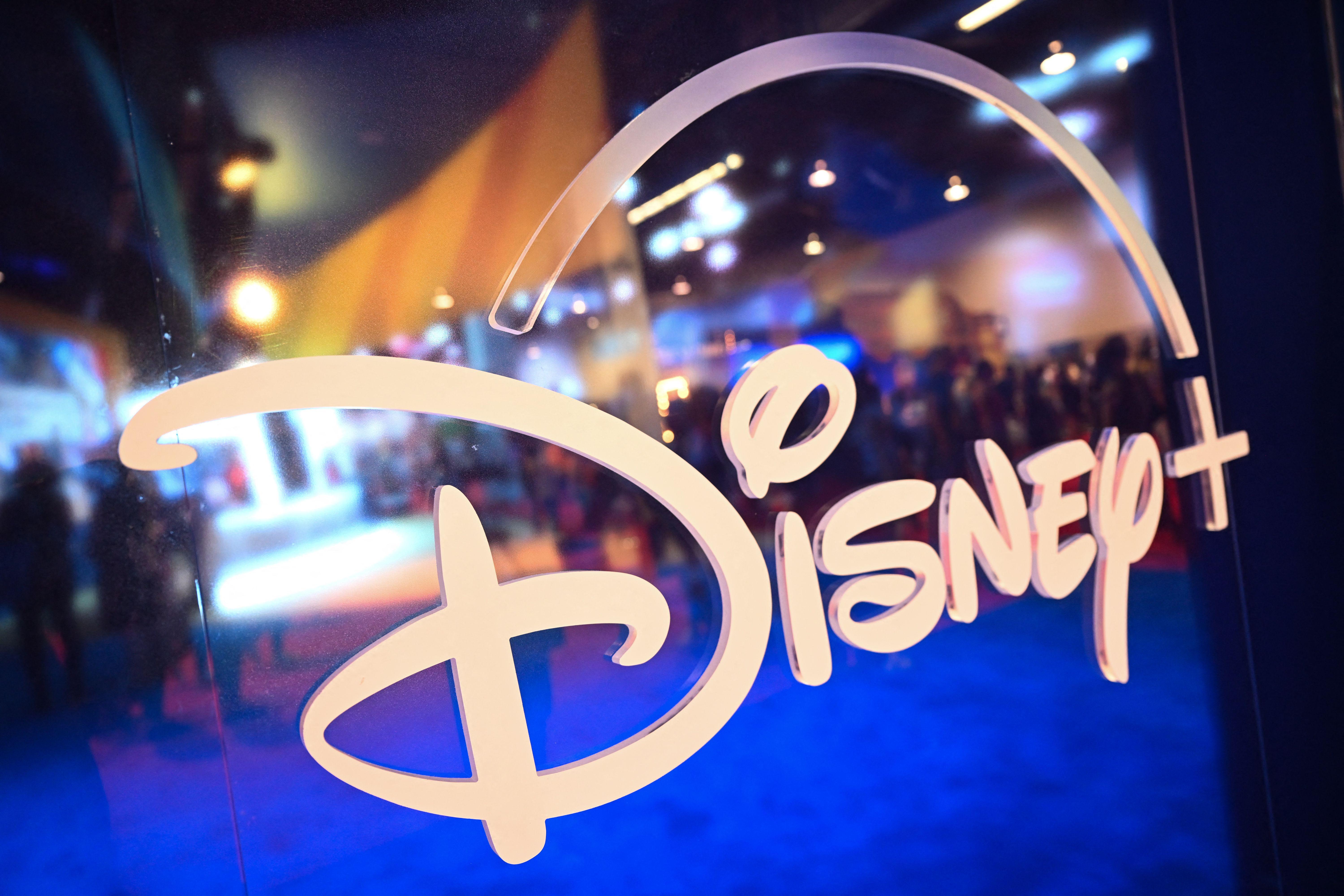
PATRICK T. FALLON/AFP // Getty Images
Walt Disney
The Disney logo on a glass door.
Sales: $72.98 billion
Market value: $215.33 billion
Number of companies/divisions: 3
The Walt Disney Company rules the entertainment world. In 2022, it was the top-earning movie studio, and it also surpassed Netflix to become the top streaming service, with 234.7 million subscribers across Disney+, Hulu, and ESPN+ compared to Netflix’s 230.8 million. The company also lures people away from their screens to vacation at its six theme parks, on its cruise ships, and at its other resort properties.
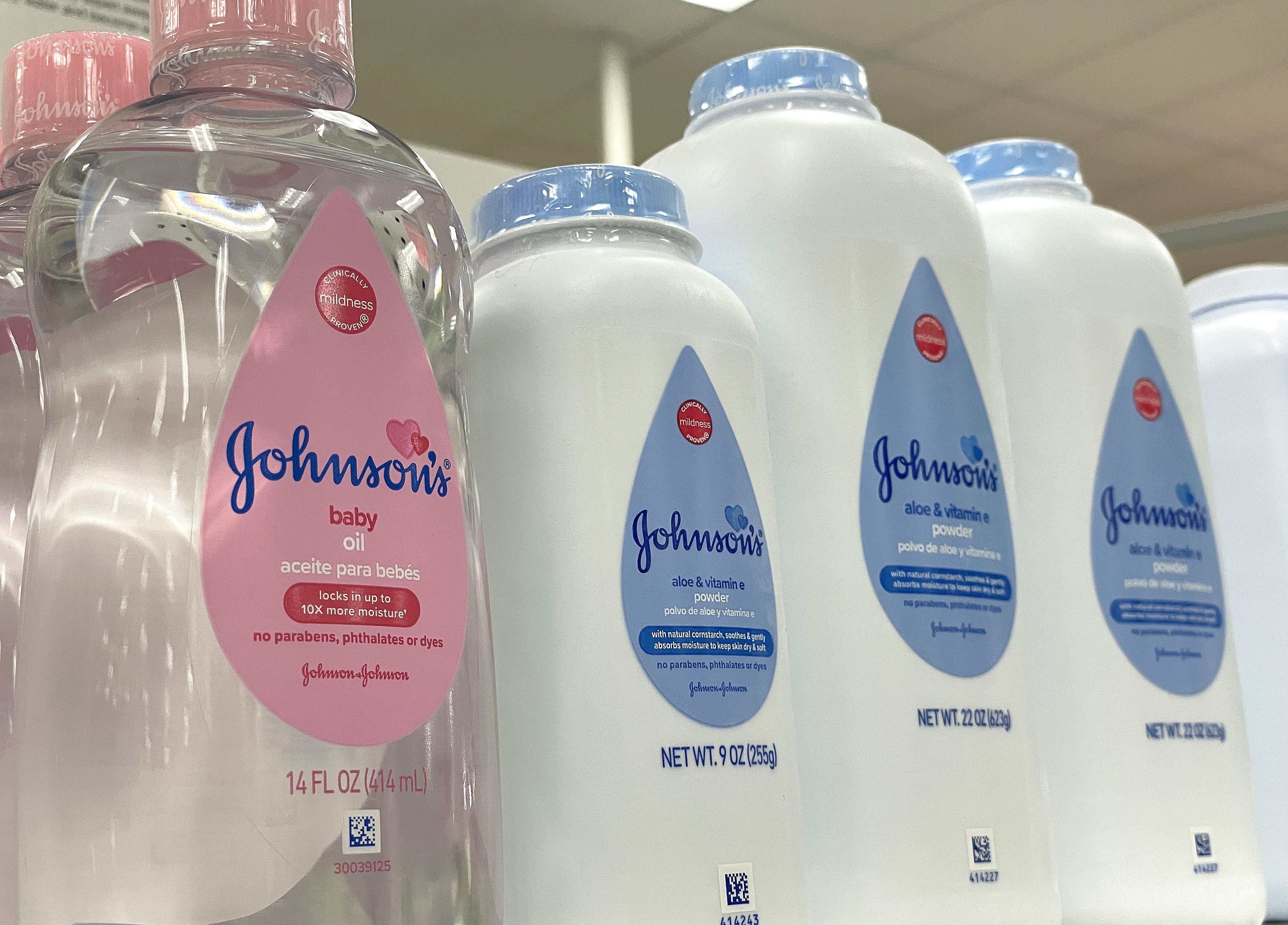
Justin Sullivan // Getty Images
Johnson & Johnson
Johnson & Johnson’s baby powder and baby oil on a shelf.
Sales: $94.88 billion
Market value: $477.38 billion
Number of companies/divisions: 3
Johnson & Johnson produces pharmaceuticals, medical devices, and consumer health products. Its 46 consumer brands include Listerine, Neutrogena, Aveeno, Rogaine, Band-Aid, Tylenol, Nicorette, Motrin, Visine, Pepcid, Stayfree, and Sudafed. The company won’t be a conglomerate much longer—in 2021, it announced a plan to spin off its consumer division into a new publicly traded company by November 2023.
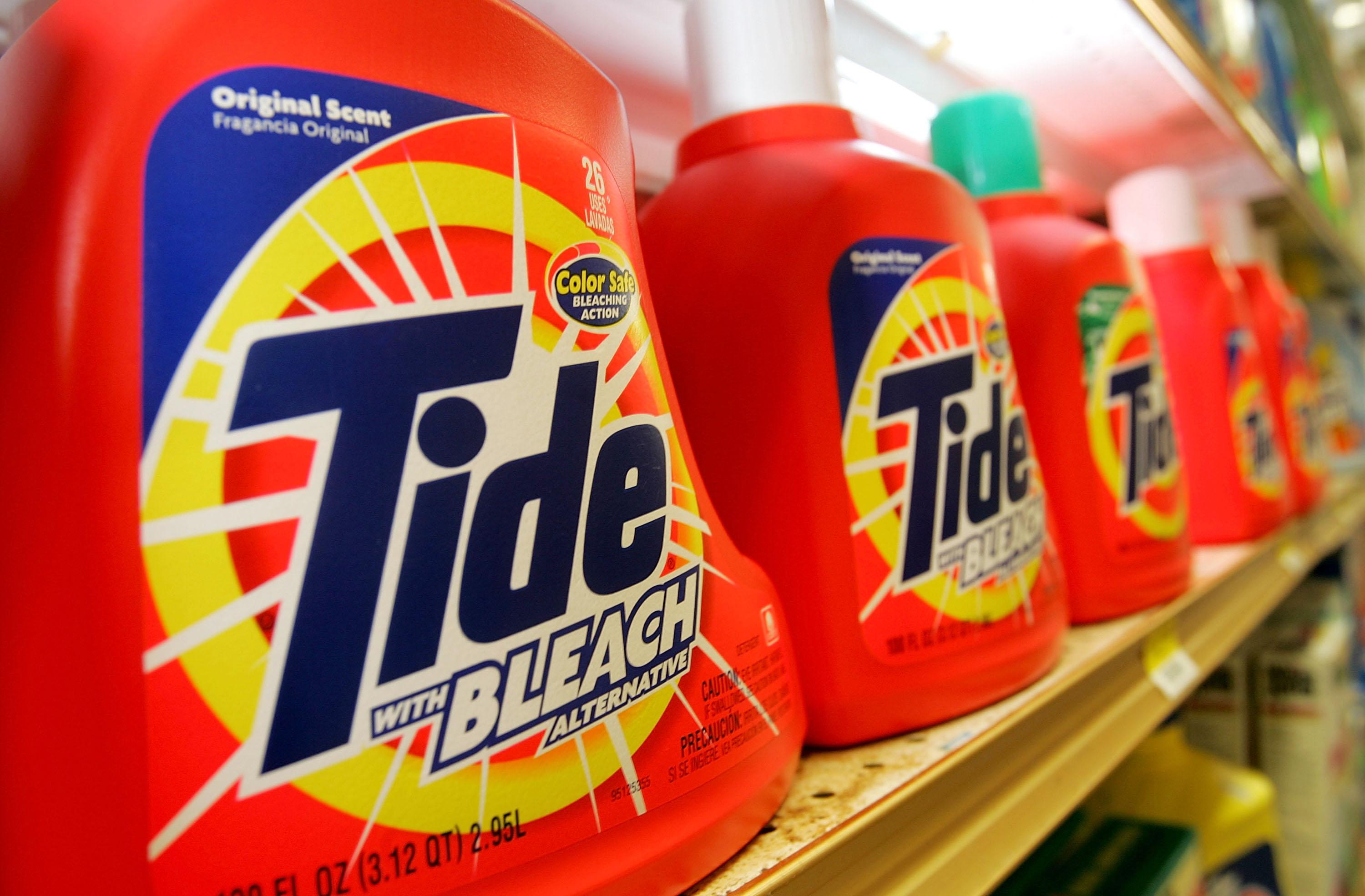
Justin Sullivan // Getty Images
Procter & Gamble
Tide laundry detergent on the grocery shelf.
Sales: $79.62 billion
Market value: $386.53 billion
Number of companies/divisions: 5
Although it’s still a major consumer goods conglomerate, over the last 12 years, Procter & Gamble has sold off many brands like Duracell and Pringles—which it invented—to focus on personal care, cleaning, and baby products. It has a commanding market share in numerous categories, including 60% of the global razors and blades market and 35% of the global fabric care market. It’s also a key competitor in hair care, oral care, and diapers, with 20% of the global market in each category.
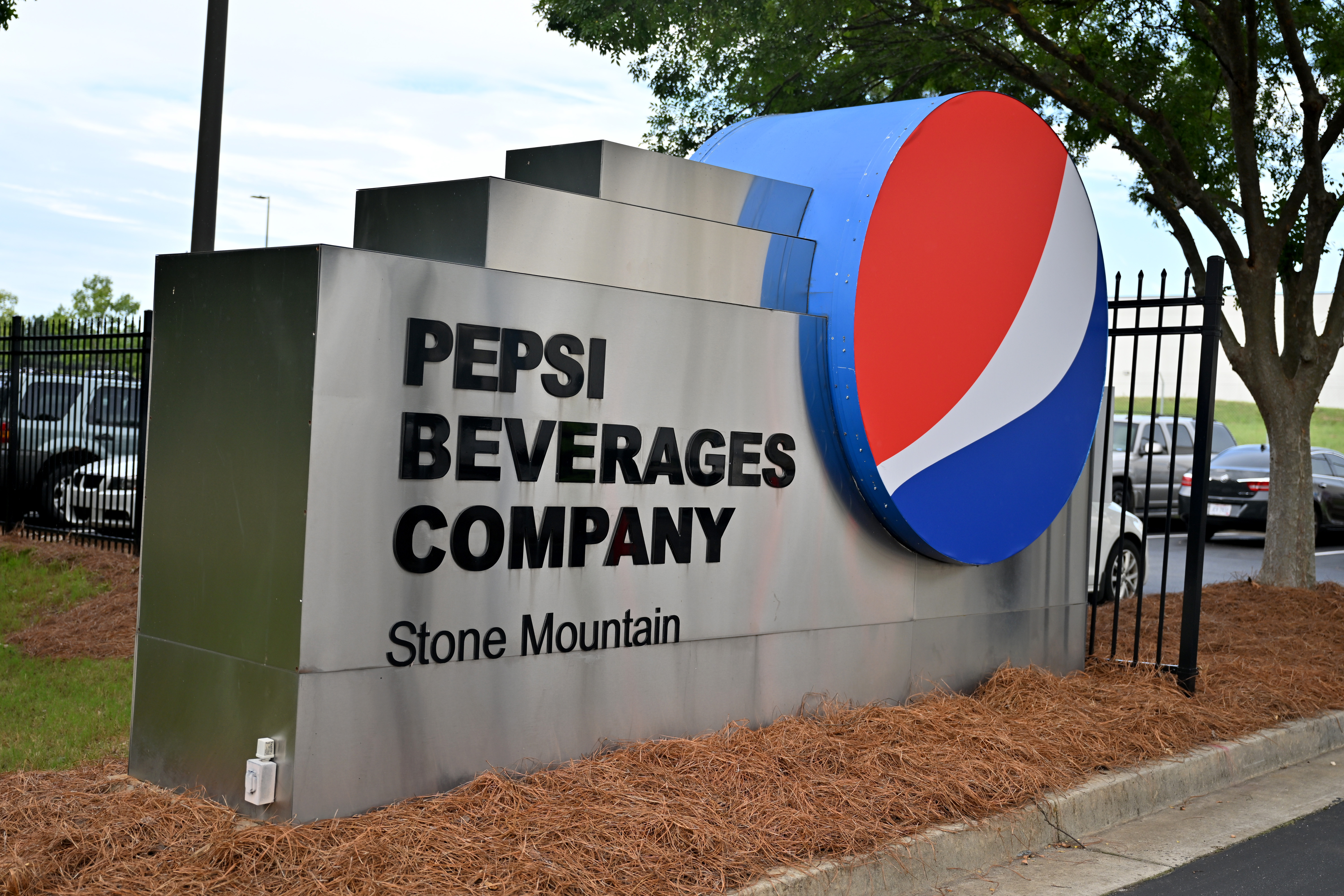
Derek White/Getty Images for Pepsi // Getty Images
PepsiCo
The Pepsi Beverages entrance sign.
Sales: $79.47 billion
Market value: $238.13 billion
Number of divisions: 7
When it comes to convenience, PepsiCo is up to the challenge. Beyond its namesake soft drinks, it also manufactures numerous brands under the Frito-Lay label, quick breakfast foods under the Quaker label, and Gatorade sports hydration drinks. In 2018, it acquired SodaStream as a new way to reach customers who mix their own beverages at home.
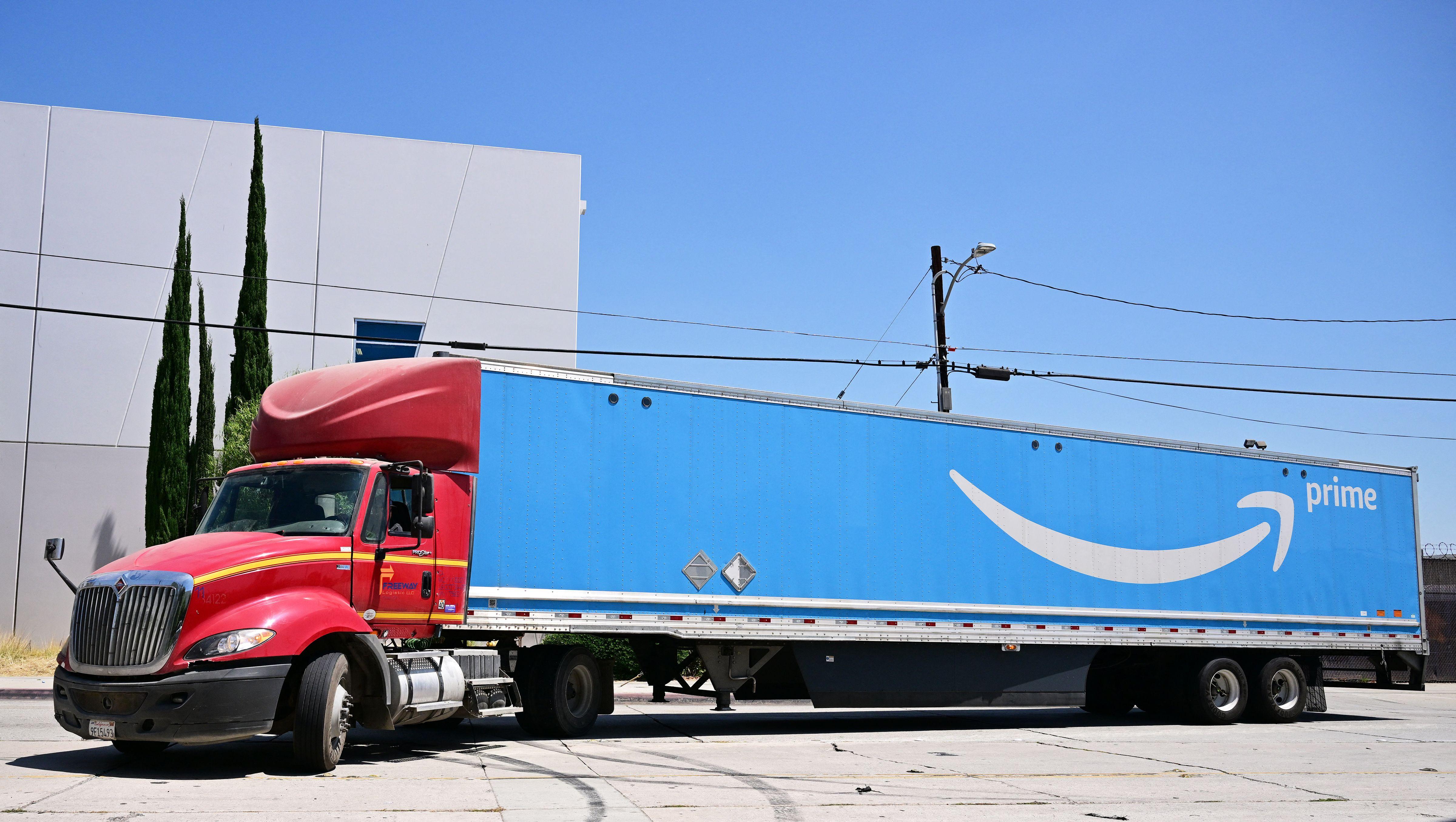
FREDERIC J. BROWN/AFP // Getty Images
Amazon
An Amazon delivery truck.
Sales: $469.82 billion
Market value: $1.5 trillion
Number of divisions: 3
What started in 1995 as an online bookseller has become a behemoth most Americans use daily. The company is the #2 retailer in the country; it manufactures electronic devices like Alexa, Ring, and Kindle; and it produces media content for Amazon Prime. However, its sole profitable division is Amazon Web Services, which controls one-third of the cloud services market.
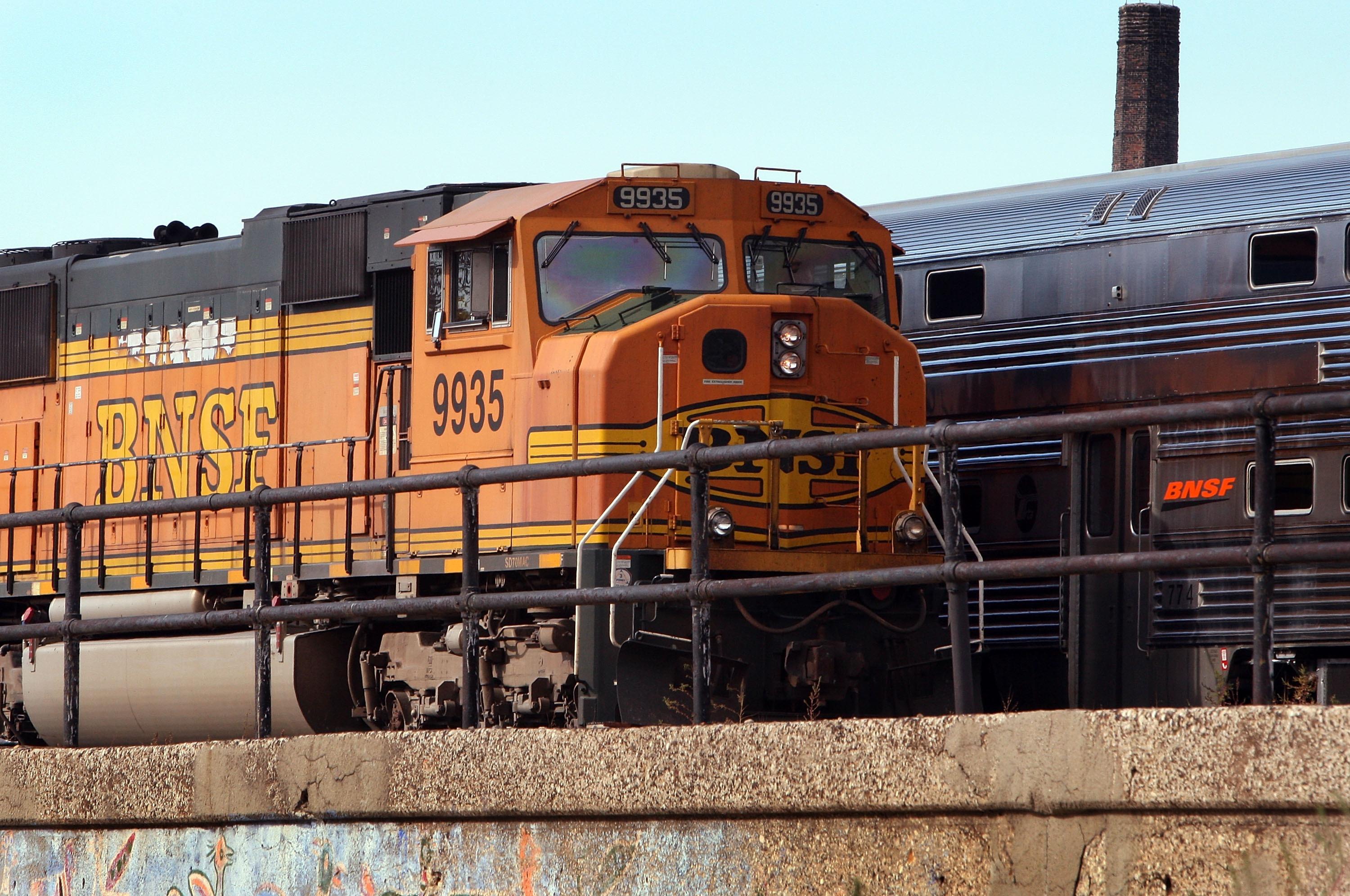
Scott Olson // Getty Images
Berkshire Hathaway
BNSF railroad cars.
Sales: $276.09 billion
Market value: $741.48 billion
Number of divisions: 8
Legendary investor Warren Buffett’s holding company is vast and varied, based on a philosophy of acquiring troubled companies with the goal of turning them around. In the car insurance market, its GEICO brand is ranked second in the country in market share. It also owns Burlington Northern Santa Fe railroad company, numerous energy utilities and gas pipelines, the business jet charting company NetJets, and consumer manufacturers and retailers such as Fruit of the Loom and Duracell.
This story originally appeared on CouponBirds and was produced and
distributed in partnership with Stacker Studio.




